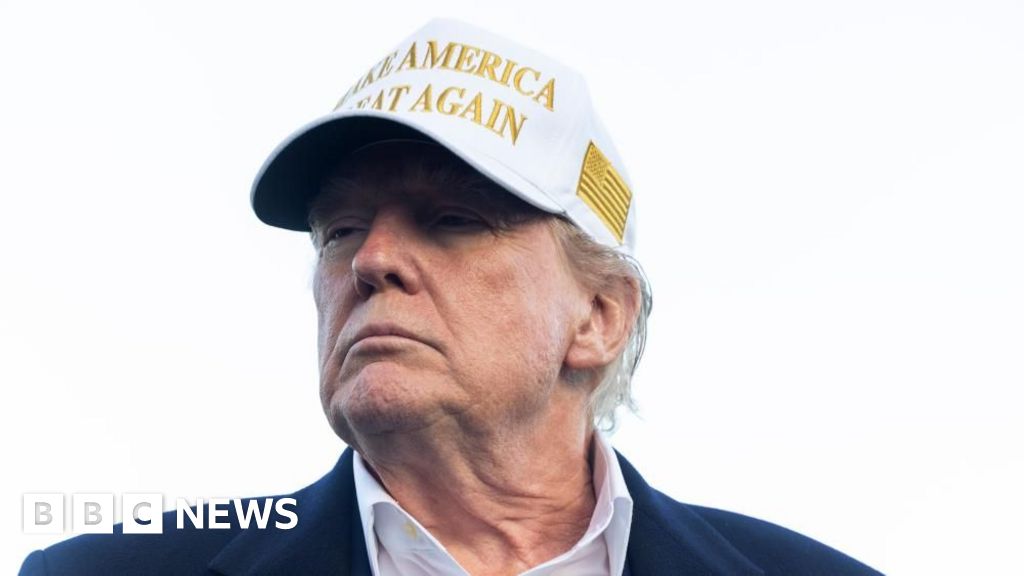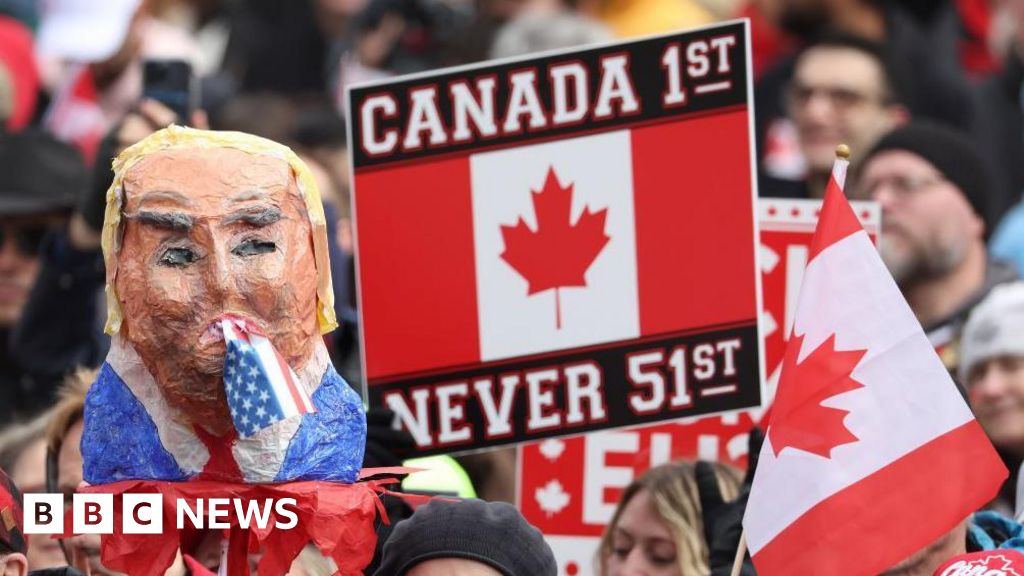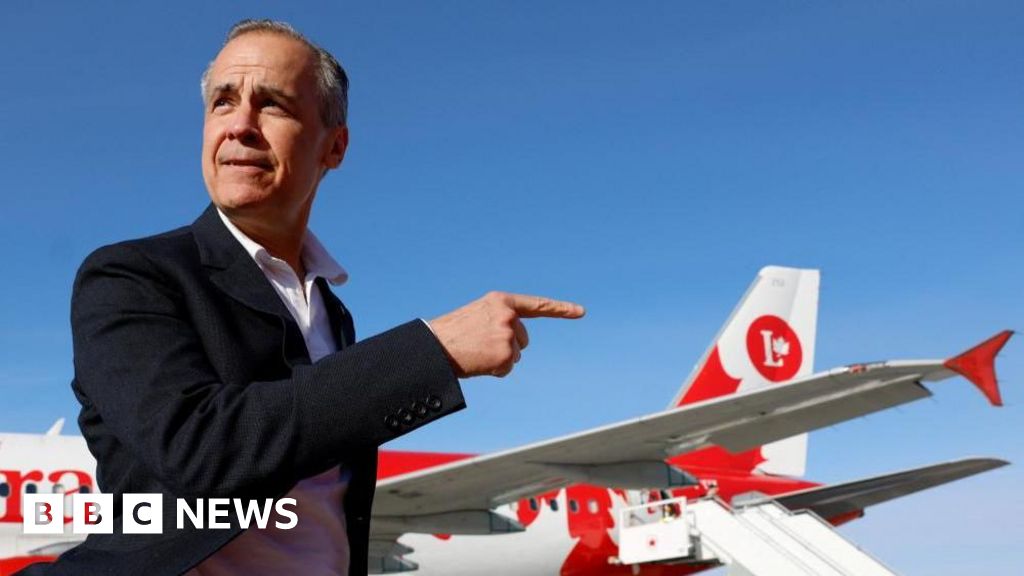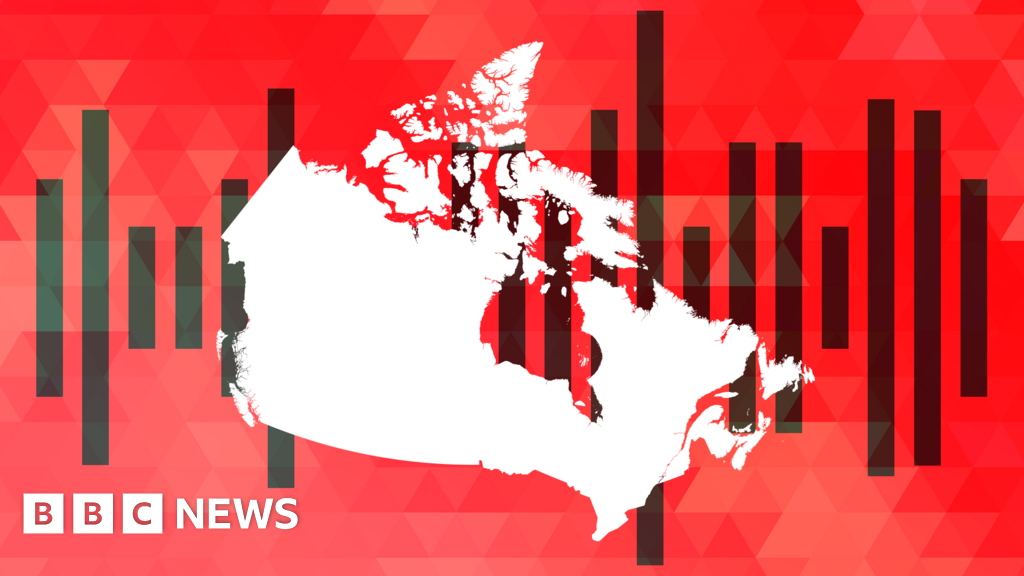Canada's Liberals Achieve Remarkable Upset Amidst Trumps Influence

LONDON, Canada In a stunning turn of events that has shaken the political landscape of Canada, the Liberal Party under the leadership of Mark Carney has deftly maneuvered from what was anticipated to be a significant defeat in December to achieving victory in the recent election held on Monday night. To fully grasp the implications of this political shift, one must delve into the grassroots movements that have arisen in response to the challenges posed by American politics.
Its important to clarify that the signs I refer to are not the campaign banners promoting Prime Minister Mark Carneys party, which were abundantly visible; rather, they are the signs found outside numerous Canadian businesses that prominently display lists of Canadian-made products available for purchase. This grassroots initiative is part of a broader boycott of American goods, a reaction directly stemming from President Donald Trumps proposed tariffs and his provocative assertions regarding the potential annexation of Canada.
A recent poll indicates that a striking 61 percent of Canadians are actively participating in this boycott, highlighting a significant shift in public sentiment. Trumps contentious rhetoric and policies have fueled a wave of nationalist anti-American sentiment that is unprecedented in Canadian history since it became an independent nation. Capitalizing on this growing resentment, the Liberal Party has positioned itself as the political entity best suited to counteract the perceived threats presented by Trump, ultimately leading to their electoral success.
From a political standpoint, this outcome represents a major blunder on Trumps part. His adversary, Conservative leader Pierre Poilievre, embodies a right-wing populism that mirrors aspects of Trumps agenda, including a penchant for media attacks and conspiracy theories, positioning him as a Canadian counterpart to the MAGA movement. Had Trump refrained from labeling Canada as a potential 51st state, he might have secured a supportive ally in Ottawa. Instead, he has inadvertently empowered Carney, a longstanding critic of American economic dominance, who ran on a platform asserting that the traditional relationship between Canada and the United States is irrevocably altered.
Trump's actions have not only created turmoil for his administration but have also jeopardized America's standing with crucial allies. By antagonizing Canada, a key partner, he risks undermining the very structures that support American influence globally. The United States has historically relied on the backing of democratic allies to shape international politics, and any electoral victories that signal a departure from U.S. interests could destabilize this framework.
Steve Saideman, a professor of international relations at Carleton University in Ottawa, emphasizes that the popularity of the U.S. president has a direct impact on how much assistance the U.S. can expect from other nations. In light of recent developments, he notes, the US wont get much help in the near future, signifying a profound shift in transnational relationships.
Historically, the Liberal Party has maintained power for a decade, exceeding the typical tenure for political parties in Canada or other democratic nations, where voter fatigue often leads to a call for change. This time, however, the Liberals faced a formidable challenge from the Conservative Party, which led the polls for much of the past year. As recently as late January, projections indicated that the Conservatives were poised to double the Liberals' share of the vote.
In a remarkable turnaround, the Carney-led Liberals surged ahead from being more than 20 percentage points behind to achieving a narrow two-point victory. While the final composition of seats in Parliament remains uncertain, the Liberals are expected to form Canadas next government, potentially requiring support from a third party to secure a majority.
Part of this remarkable shift can be attributed to the Liberal Partys strategic decision to bring in new leadership. Former Prime Minister Justin Trudeau, having faced a significant decline in approval ratings, stepped down as leader in December, paving the way for Carney, who is respected for his previous role as a central banker but was not an incumbent MP, to take the helm. However, the mere change in leadership was insufficient to explain the dramatic change in polling figures, as the party continued to struggle for about a month following Trudeaus resignation.
The impetus for the Liberals' comeback can largely be traced back to Trumps incendiary remarks regarding Canadas sovereignty, particularly his repeated references to making Canada the 51st state. Even his initial attempt to humorously refer to Trudeau as Governor Trudeau was underscored by a subsequent escalation of rhetoric and policies, resulting in heavy tariffs on Canadian products with unfounded justifications.
This political climate proved catastrophic for the Conservative Party, whose leader Poilievre represents a segment of the party that may align ideologically with Trump. Poilievres campaign style, characterized by dismissive nicknames for opponents and rhetoric against what he terms the woke mob, may have alienated many voters seeking stability and respect in international relations.
Recognizing the severity of the situation, Kory Teneycke, one of the partys leading strategists, publicly criticized Poilievres campaign as malpractice at the highest level for failing to address the palpable concerns regarding Trumps influence.
In contrast, Carney has been perceived as effectively managing the contentious relationship with the U.S. since taking office. His extensive background in international finance, particularly as a previous governor of the Bank of England during the Brexit crisis, has instilled confidence among Canadians that he will navigate the trade tensions with prudence. Polls indicate a marked preference for Carney over Poilievre on vital issues such as economic management and standing firm against Trump.
David Goodwin, a seasoned Liberal organizer, has made his debut as a parliamentary candidate this year, seeking to represent a riding that has traditionally been a Conservative stronghold for the last two decades. He notes that the anxiety surrounding Trump has galvanized Canadians, motivating them to participate politically like never before, stating, Because of Donald Trump, [the election] has really mobilized Canadians to get involved.
As the election results unfolded, Goodwin found himself trailing significantly, but his improved performance compared to previous Liberal candidates confirmed the partys prevailing sentiment and strategic shift. The Liberals succeeded by harnessing the widespread anger toward American politics.
Throughout the campaign, Carney adopted a forthright stance regarding the future of U.S.-Canada relations, hinting at a potential disentanglement from the extensive military and economic ties that have historically connected the two nations. Although experts warn that such drastic measures may be overstated given Canadas reliance on U.S. defense capabilities, it is clear that the political landscape is shifting.
Experts suggest that while Carney may be amplifying the rhetoric for electoral advantage, the underlying concerns are valid. Options for Canada to pivot away from the U.S. include pursuing new trade agreements with the European Union or increasing defense spending. However, a more profound issue looms on the horizon, as the U.S. has constructed a network of alliances based on mutual trust and respect with its allies. This trust is now being tested, and Canadas recent electoral outcome signals a potential shift in allegiances.
Historically, the dynamics between the U.S. and Canada have remained resilient even through tensions, such as during the Iraq War. However, by challenging Canadas economic integrity and sovereignty, the Trump administration has crossed significant boundaries. Canada can no longer count on the U.S. as a reliable ally, and uncertainty prevails regarding future relations under subsequent Republican administrations.
As the global political landscape evolves, the ramifications of these developments extend beyond North America. Similar trends are emerging in other allied nations, such as Australia, where the political climate has also turned against American leadership, suggesting a broader discontent with U.S. policies. Political analysts warn that Trumps aggressive economic strategies are not restoring Americas respect on the world stage; rather, they are prompting longstanding allies to reconsider their positions and strategies for engaging with a nation that has long been viewed as a leader.
In conclusion, the recent electoral success of Canadas Liberals is not simply a reflection of domestic politics; it is intricately tied to the shifting tides of international relations and the responses to Trumps policies. As Canada embraces this newfound political alignment, the implications for U.S.-Canadian relations and the broader geopolitical landscape remain to be seen.


























